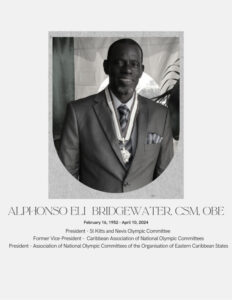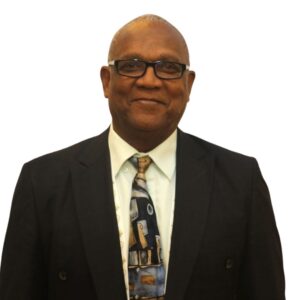Small, talented, and remarkably rich in potential
Several years ago, then young black singer and pianist, Nina Simone, delivered the poignantly epic song, To Be Young, Gifted and Black.
The background to the song was a comment made by playwright Lorraine Hansberry, author of the book, A Raisin in the Sun, and the first black woman to have a play performed on Broadway, while, in 1965, delivering a presentation to a group of student essay winners. Se said to them, “I wanted to be able to come here and speak with you on this occasion because you are young, gifted and black.”
After Hansberry died in 1968, Simone wrote the music while her bandleader, Weldon Irvine, put the words to it. Simone claimed that the words had never left her and felt compelled to pay due tribute.
Of course, it was the heyday of the emergence of the Black Power movement and was a. fitting tribute to those who engaged in the struggle for black recognition as human beings, that eventually spread across the world. The song attained global appeal and became a rallying cry for young blacks everywhere, for decades to come.
Noel King and Walter Ray Watson (https://www.npr.org/2019/01/08/683021559/nina-simone-to-be-young-gifted-and-black-american-anthem) writing in January 2019, reminded us all of Nina Simone’s commitment to black children.
The brief reminder of Nina Simone’s powerful ‘anthem’ is to make the point that we often have to rouse ourselves from our slumber as black peoples of the Caribbean, understanding our history of struggle for genuine freedom and recognition as critical to any form of reconciliation. There can be no reconciliation without truth.
The achievements of young Caribbean athletes in sport, are critical to our push for acknowledgement of truth and an affirmation that neither our colour nor the size of our countries can ever deny us the realisation of our immense potential in any sphere of human endeavour.
Our small Caribbean nations have produced Nobel laureates, highlighting our academic potential. Repeatedly too, our athletes have risen to the top of their disciplines amongst the best in the world, becoming role models for successive generations as yet unborn.
The most recent evidence came at the recently concluded World Athletics Indoor Championships held in Glasgow, Scotland. It was a continuation of a process of the manifestation of our youth, men, and women, to a world that seems only too eager to deny our very reason for being. Fortunately, the more they try to deny us the more committed we are to defiant success, a truth that many of our politicians unfortunately fail to comprehend and from which they seek to learn nothing.
Small versus small
Global politics have led us all to believe that small is defined by both geographical physical size as well as by population size. This is the methods used in sport to define small member federations.
Small Caribbean sports organisations have a particular problem when engaged in global sport activities.
At a Symposium of National Olympic Committees held in Miami, Florida, a few weeks ago, the president of the St Vincent and the Grenadines Olympic Committee (SVGOC), Stephen Joachim, expressed the view that the Caribbean possesses NOCs that should be best described as ‘micro’. His point was that at the very Symposium, Panama, with a population of 4.3 million dared to consider itself as small. So too does Puerto Rico with a population of 3.3 million and Cuba, with a population of over 11 million people.
The problem is that in sport, the problem is very much what was expressed by our Caribbean colonisers that led to the distinction between the Greater Antilles and the Lesser Antilles. The result was that the smaller countries were and still are discriminated against because of size.
Alexander Bustamante used the size of Jamaica as against several of the smaller islands of the Eastern Caribbean to led and win a referendum on that country’s rejection of membership of the West Indies Federation (1958-1962). The essential argument that won him and his party in the referendum was the creation of fear amongst Jamaicans that any such Federation would see the small and poor islands becoming dependent in the larger ones, leading to migration from them to the likes of his country.
Of note is that there is still a legacy of the kind of thinking of Bustamante around. We experience it all of the time and this is the case in the so-called ‘larger’ nations of the Caribbean.
The idiocy of the foregoing line of thinking is that as far as the global environment of nations is concerned, we in the Caribbean are all considered small and essentially so poor that we are forever dependent on the larger countries and economies of the world.
The beggar-maid foreign policies of our Caribbean political leaders only serve to further entrench the belief that we cannot help ourselves because we lack the capacity to do so. This explains their debilitating leadership, and their readiness to become benevolent dictators begging for their supper of global recognition.
Sport to the rescue
It is perhaps not by accident that athletics is the first sport to have awakened the international community of nations of the immeasurable talent of the peoples of the Caribbean. Jamaican men, some attending universities in the USA and others engaged in activities in the United Kingdom, pushed themselves onto global recognition as runners. Their ascent was registered at the Olympic Games held in London, England, in 1948 and much more so four years later, 1952, at the Games in Helsinki, Finland.
In London, Arthur Wint registered Jamaica’s first gold medal when winning the 400m ahead of fellow Jamaican and pre-race favourite, Herb McKenley. He wain silver in the 800m at the same edition of the Games, behind USA’s Mal Whitfield.
In Helsinki, Wint ran the final leg of the Jamaican 4 x 400 relay team to win the event in an Olympic record performance. The other team members were George Rhoden, Les Laing and Herb McKenley.
Cuba won the first Caribbean medal at the Olympics. It was in Fencing at the Games of 1904 in Paris, France.
The Haitian free rifle team won bronze at the Olympics of 1924 while Puerto Rico (Boxing) and Trinidad and Tobago (Weightlifting) won their first Olympic medals at the Games of 1948.
Over the past several years, however, Caribbean athletes have left their indelible marks on the annals of Olympic history and World Championships of several sports.
St Vincent and the Grenadines won its first Pan American Games medal in Chicago, Illinois, USA, in 1959 and gold medals at the Commonwealth Games from weightlifter, George Manners, and gold from Frankie Lucas (boxer) at the Commonwealth Games of 1990, Auckland, New Zealand.
It is an unfortunate reality that Caribbean governments, while basking in the glory and international renown brought to their countries by athletes, have somehow found themselves incapable of according of locating sport an appropriate part of their national development processes. This is the case everywhere, with the possible exception of Cuba. In the case of the latter, several other factors must be given due consideration as to the topsy-turvy manner in which this has been played out over the years.
A new era
Small Caribbean nation entered a new phase of international recognition and popularity when Kim Collins, coming from St Kitts and Nevis, with a population of under 50,000, slammed the world in winning the 100m at the Commonwealth Games in Manchester, England in 2002 and followed up with victory in the same event one year later at the World Championships in Athletics in Paris, France in 2003.
The world then knew about the twin-island Federation, and he held its attention for several years thereafter.
The Bahamas is easily one of the small Caribbean’s success stories in athletics. The country has consistently produced topflight athletes and the government has invested more money in sport than any of the other Caribbean countries in the past two decades.
The Bahamas’ Devynne Charlton, shattered the world record for the 60mH for the second time this year.
Laverne Spencer, St Lucia’s High Jumper, earned herself global recognition while still a junior athlete and through the ranks to the Central American and Caribbean Games and the Pan American Games.
Just when many thought that St Lucian athletes had all but done with the sport of athletics Julien Alfred dramatically changed the NCAA record books at both the Indoor and Outdoor Championships in 2023, won the 100m and 200m at the CAC Games in El Salvador and made the finals of both the 100m and 200m at the World Championships in Athletics, all in the same year. Over the past weekend, Alfred demolished the field in winning the 60m title at the World Athletics Indoor Championships in Glasgow, Scotland.
One day after Alfred’s amazing victory, Dominica’s Thea LaFond rose to the occasion and won the women’s Triple Jump in Glasgow, giving the Nature Isle its first World Athletics title.
Interestingly, for the first time in World Athletics history, three small nations, The Bahamas, Dominica and St Lucia, all with relatively small populations, tied for second behind the USA, sharing the medal position with Canada and finishing ahead of Jamaica and Cuba in this particular aspect of NACAC’s countries at the Championships.
The future
The next major event on the calendar for our athletes would be the Summer Olympics in Paris, France.
Many of our Caribbean athletes would have been preparing and saving themselves for Paris, France. They are prepared to defy the perception, archaic though it be, that coming from small islands is not necessarily to be equated with a lack of talent.
Importantly, as we celebrate International Women’s Day 2024 with the rest of. The world, Caribbean sports associations can stand proud of our women’s achievements at the World Athletics Indoor Championships in Glasgow. This may well prove a game-changer for all time and especially for young Caribbean female athletes.
Paris would probably prove a major catalyst in debunking this outdated approach to developing our talented athletes to bolster the international image and status of our respective countries.





